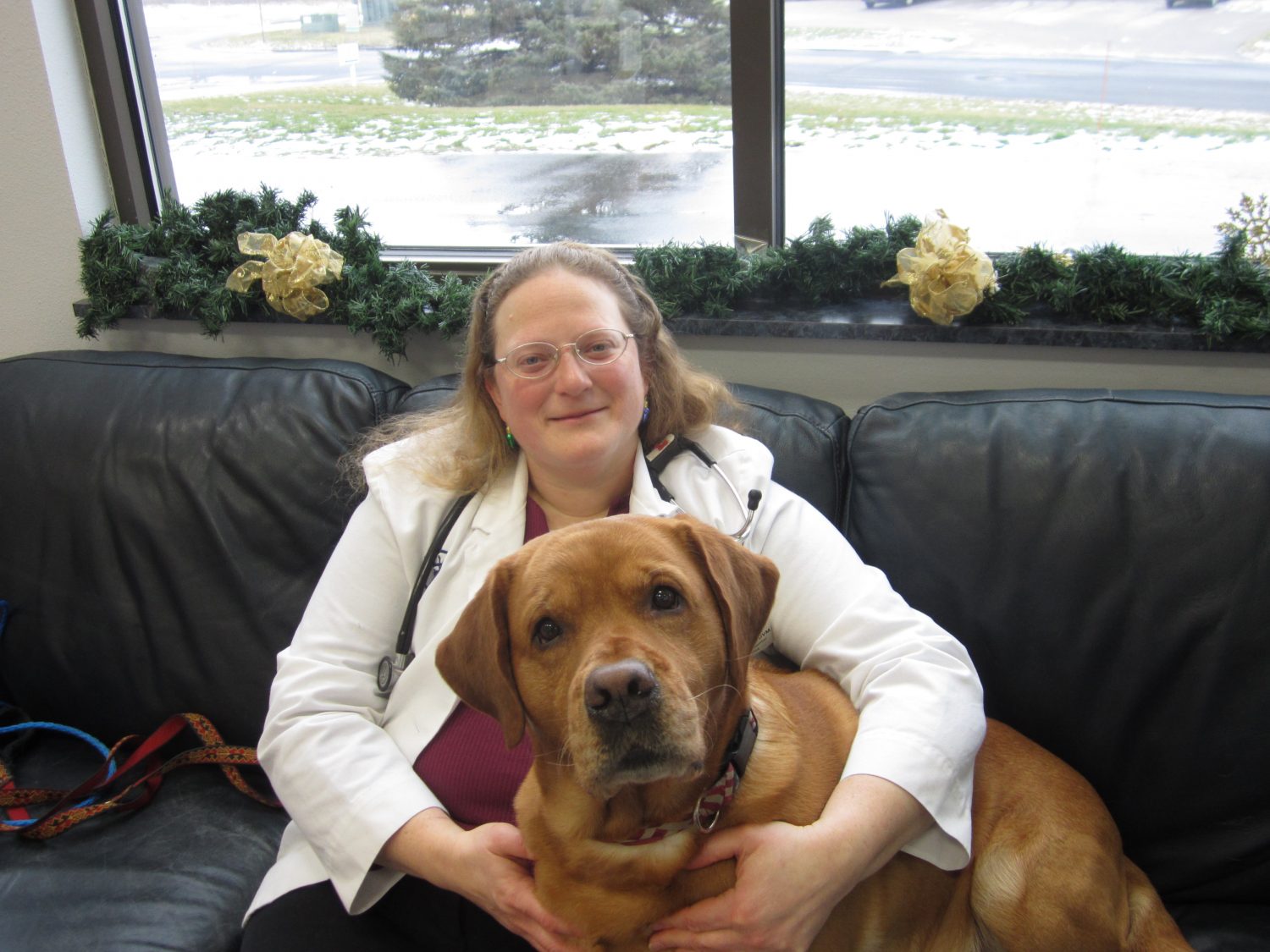Breed breakdown: An in-depth look at the Bernese Mountain Dog

The vet’s office
By Dr. Beth Engelbert, DVM
Wildwood Animal Hospital and Clinic LLC
Calm, good natured, and strong is how the American Kennel Club describes the Bernese Mountain Dog. “Berners” are generally eager to please and easy to train. With a giant breed, being amiable is a good thing. These big dogs are fun to watch in sports such as obedience, agility, or weight pulling.
The Bernese Mountain Dog gets its name from Berne, Switzerland, where it originated. The Berners’ job was to watch over farms. They alerted to strangers and helped guard small herds of cows. These sturdy dogs were also used to pull carts. Although watchful, they were not known to be shy or aggressive and were gentle members of the family.
Like most Swiss dogs, the Bernese Mountain Dog has a distinctive color pattern. Berners’ tricolored pattern is made of black with tan highlights, a white blaze on the face and muzzle, white on the feet and tail tip, as well as a white cross on the chest. A symmetrical pattern is preferred. Berners have moderately long fur and a bushy tail.
With thick legs and a wide head, the Berner gives an impression of being square. Berners have an easy, free gait and can be fast and agile, which seems unexpected for a dog that can weigh more than 100 pounds. Unlike other breeds of similar size, the Berner does not have very loose lips and tends not to drool.
Despite all the good traits of the Berner, they are not known for a long lifespan, averaging only seven to eight years. Cancer is a major reason for their short lives. Berners are prone to several cancers, including malignant histiocytosis, osteosarcoma, lymphoma, and mast cell tumors. Unfortunately, chemotherapy usually only slows the progression and symptoms of the disease.
Being large dogs, orthopedic problems can be found. Hip and elbow dysplasia, if present, can lead to arthritis or other injuries such as cruciate ligament tears. Panosteitis is a painful but treatable condition in puppies. Osteochondritis dessicans can lead to bone chips in joints, causing pain and arthritis if not caught early and treated with surgical intervention.
Other maladies seen in Berners include von Willebrand disease, allergies, eyelid disorders, progressive retinal atrophy, subaortic stenosis affecting the heart, and hypothyroidism. Berners are also prone to bloat, and management of feeding and exercise is important for prevention.
While the breed standard states Berners should be confident and good natured, some dogs can be prone to aggression. Anyone thinking about buying a puppy should definitely meet both parents. With a dog of this size, puppy classes and socialization are critical. More than one class may be needed until mental maturity is reached.
As always, researching breeders and their pedigrees is important to find a loving, healthy friend.
Wildwood Animal Hospital and Clinic LLC is located at 210 Airpark Road in Marshfield and online at wildwoodanimalhospital.net.
Leave a reply
You must be logged in to post a comment.






